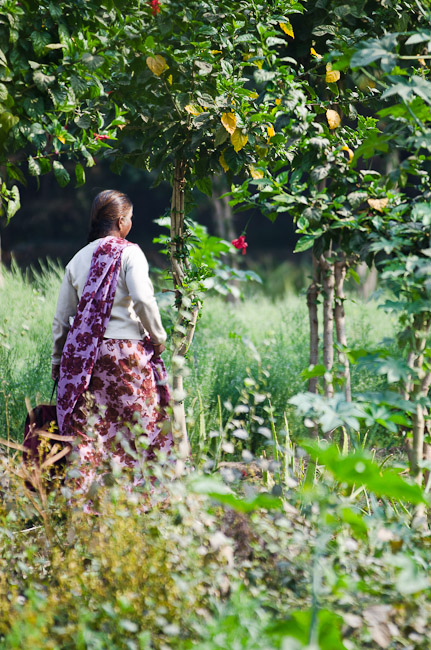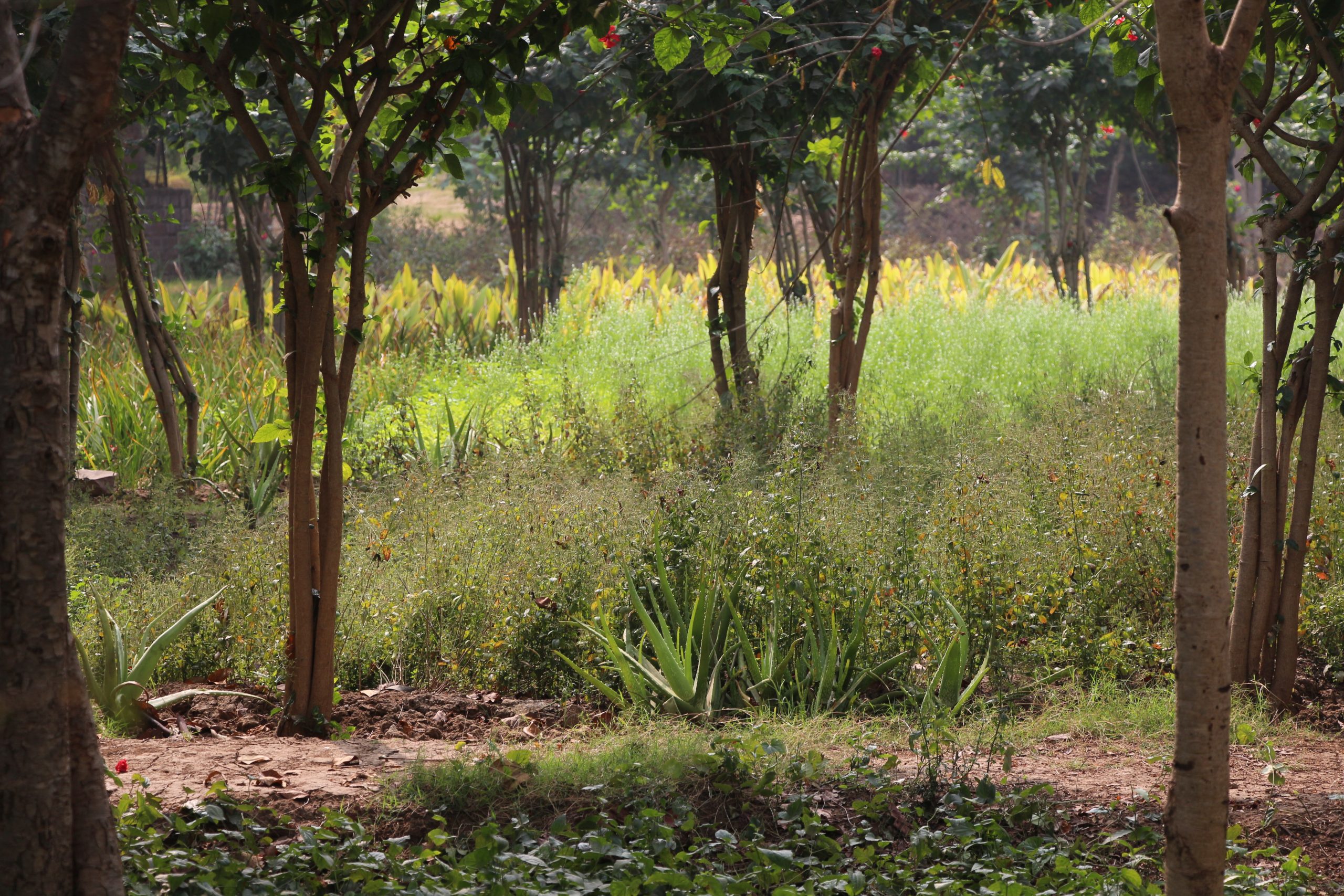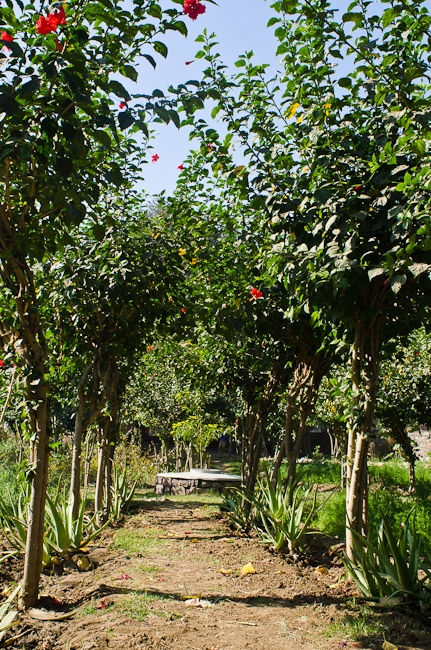Sambhavna’s Medicinal Herbal Garden
Sambhavna Trust chose to break the cycle of poison by growing ancient plant remedies to treat the modern industrial diseases engulfing Bhopal.
In 2003, work began on the creation of an organic herbal medicine garden at the Sambhavna clinic in Bhopal. The one-acre garden is used to produce fresh herbs for use in the manufacture of Ayurvedic medicines dispensed by the clinic, train local staff and community members in organic growing techniques, educate the larger community about growing and using medicinal herbs, and demonstrate an alternative to agriculture and health care systems ruled by corporations.
In two years organic farmer and garden designer, Terry Allan, along with clinic staff and community volunteers had transformed a plastic-garbage strewn lot into a productive and beautiful organic herb garden, creating a model of effective community health intervention of relevance to all those in need of medical programs guided by the fundamental principle 'first do no harm'.
With more than 90 different medicinal plant species established and growing, supplying a large percentage of the plant material required by the clinic for making ayurvedic medicines for the survivors.
In addition to supplying the Clinic with high quality medicines, the garden is used for educational programs on herbal medicines and as a centre for training people from the local community in the small-scale manufacture of medicines as an economic rehabilitation opportunity.


The chemical that poisoned the people of Bhopal – MIC – is used to produce carbaryl (Sevin) and aldicarb (Temik), common, widely used agricultural pesticides. The chemical companies that produce and sell these poisons are one arm of an industry whose other hand deals in pharmaceuticals, effectively a closed loop profit system in which one arm creates the market for the other. Yet, modern medicine has little or no treatment for many immunological, neurological and endocrinal environmental diseases. Finding effective herbal ways to treat environmental diseases is a significant step out of the chemical /pharmaceutical circle of poison.
The Sambhavna organic herb garden stands in sharp contrast to corporate agriculture and health care, demonstrating that chemicals are not required for either. In the shadow of the pesticide factory that killed thousands in Bhopal, our garden is a powerful example of “possibilities” and sustainable futures.
Working with others, Terry's original vision has become a reality. The Sambhavna Medicinal Garden is lush and green, surrounded by shady trees and shrubs. Beneath this shady border, worms are at work making rich, dark compost for use in the garden. Walking paths meander through the beds of more than 90 varieties of medicinal plants. Hand painted signs help you identify the plants and their uses. Around the large pond you see plant species that like water. Entering the small grove of trees next to the pond you follow a small stream up to a short waterfall. The sound of the water gurgling over the rocks tempts you to pause for a rest on the bench. Once still, you notice the dragonflies flitting over the water, and are amused by the chipmunks running around the trees and stones. Continuing up the path toward the clinic you pass several women doing yoga for relief of breathlessness. You pass the medicine-making workshop where the plants harvested from the garden are being made into Ayurvedic medicines. Ahead is a plant nursery where you can find the plants you want to grow in your own medicine garden at home. Reluctant to leave, you head back down toward the Tamarind tree for a last lingering view of the beautiful garden.


A Healing Garden Grows in Bhopal - Video by Health Care Without Harm.

Bhopal's Healing Garden - Using ancient plant medicines to break the cycle of corporate poison - A discussion hosted by The Bhopal Medical Appeal to celebrate World Localisation Day 2021

